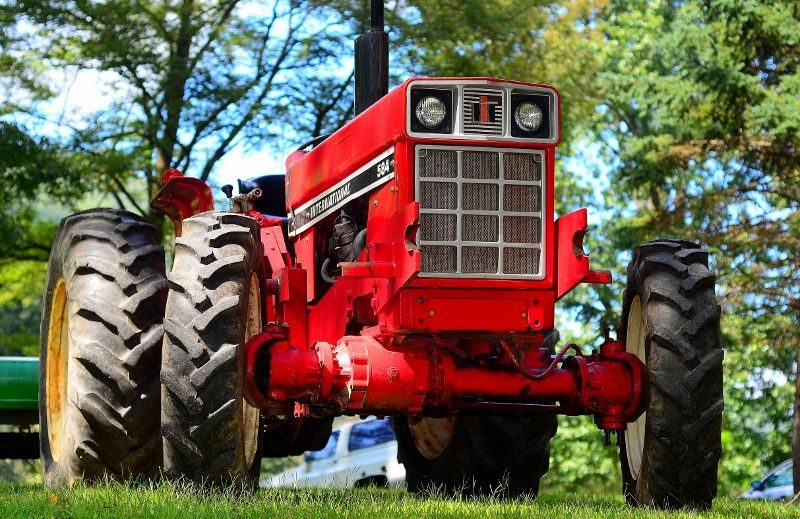Field mowing aka bushhogging comprises 90% of my side business. And of that 90%....a good third to half is doing horse pastures. Which can be gravy jobs as the horses keep it pretty thinned out.....or can be a nightmare with rocks cropping up, or just so bumpy you have to go at a snails pace. These usually get done 2-3 times a year, and I have alot of repeat business in this area.
Aside from pasture clipping, the rest really is a variety. Some of the jobs are just overgrown 4-5 acre tracts that were old fields lotted off. Once finally sold, the purchaser wants/needs to be able to get in there to decide where they want their house laid out, drive, septic inspection, etc. And they dont want to be walking in 3-4' high weeds to do so.
Some are up around houses. (where you really need insurance for sure). Where someones lawnmower broke and by the time they got it repaired their lawn is too much for them to handle now.
Some are for bank/repo's mowing an acre or two around the house. On these I have never dealt directly with the banks, rather through a third party contractor that the bank hires to "clean the place up", allthough if I had an "In" with some banks I could probably do alot of these jobs. But they normally suck as you never know what you are gonna hit in a "yard" that aint been mowed in a year. Tires, kids bicycle, mattress frame, well casing, concrete septic lids, etc.
I also do a fair bit of commercial work. Areas around commercial buildings that the company owns.....but isnt yard. But they still want to keep it looking nice and mowed a few times a year.
If you take on any of these commercial, or multiple times per year accounts, make sure you are dependable and do a good job. If you arent, it will cost you more business that you will never even know about.
I also have an "IN" with a local company that does about everything. Mowing, landscaping, hardscaping, new yard installs, irrigation, asphalt sealing, etc etc etc. I have known the owners of the company for many years, back when he was just a guy with a skid loader looking to make a go at it on his own. I am his "go-to" for bushhogging. If you get any "ins" like this, its important that you not talk pricing and what not with the customer and try to under cut the company that hired you for future services. A little professional courtesy. I have had many of these contract jobs ask me right off what I would charge to do it instead of going through "......lawn company". I politely tell them that I cannot beat their price, as they give me so much volume + guaranteed payment. Sure, we have competed on jobs before.....(and I always win because they have to make something), but if a customer didnt find me on their own to get the job quoted........I aint gonna slap the hand that feeds me.
But as to other jobs I do, I am capable of tilling, do driveway grading and spreading gravel, leveling areas for building a barn, spreading/moving dirt, digging post holes, etc. And advertise most of that as well. Not much demand for those though it seems. I do on occasion a little bit of the driveway grading and blading. But in my area, the field mowing is where its at. Much more demand.
So with all that in mind, step 1 is you need to understand your equipment, and how quickly you can work in different conditions, then figure out a pricing structure. I never charge by the hour, or by the acre. I give a quote to do a job, and stick to it. You cannot charge by the acre, because every acre is different. And by the hour......first question they will always ask is "well how long do you think it will take". And whatever you say, you for **** sure better not go over. Which leaves estimating a little high to cover unknowns.....which may cost you jobs.
I target $70/hour from my house BACK to my house......but the customer doesnt know this. Based on acreage (confirmed on findlotsize.com), and conditions they describe to me (when the last time it was mowed, how tall, saplings/briars, obsticals, etc), I can get an idea of how long its gonna take me to mow. And google tells me my drive time. Take that times $70 and their is your flat price. And unless something changes when I arrive (they add more work, conditions vastly different than described, etc) I stick to my price. Sometimes after all said and done I come out at $60, some times at $80. But it all averages out.
So to summarize:
1. Figure out what there is a high demand for in your area. For me its field mowing.
2. Figure out your pricing structure.
3. Be dependable. Which means having quality and reliable equipment.
4. Be insured.

